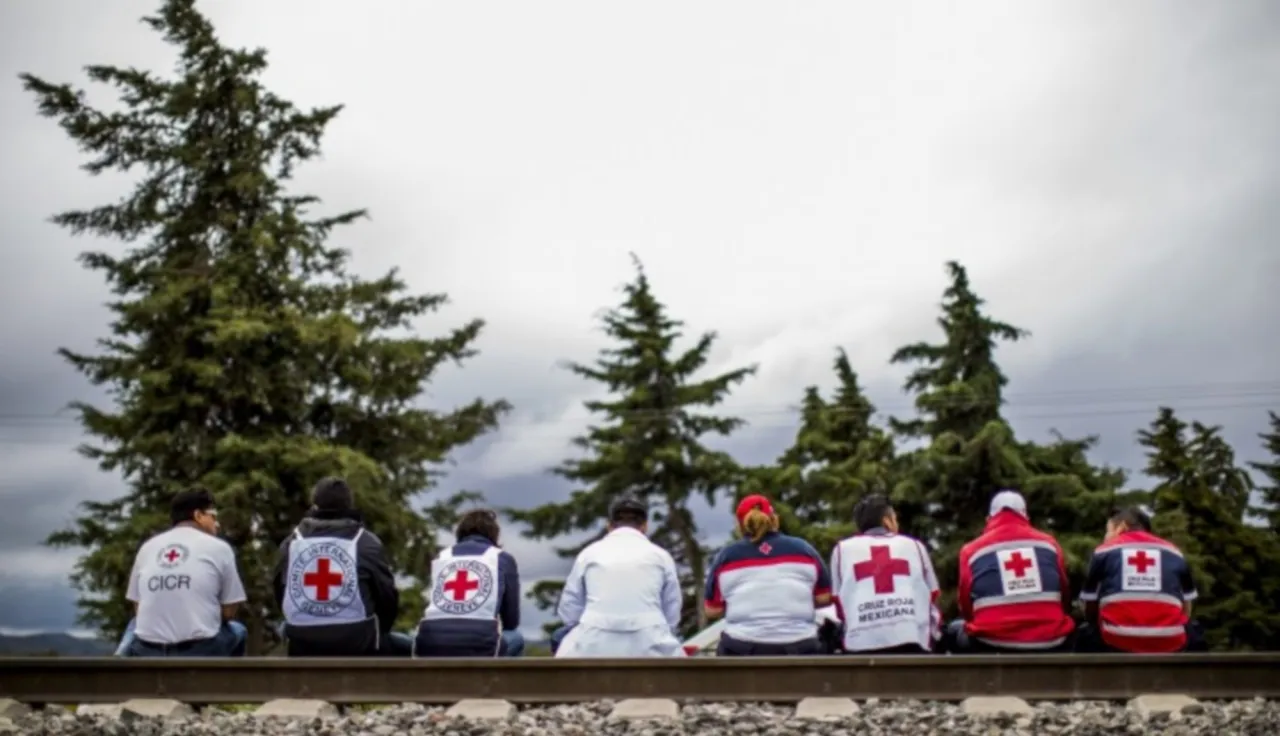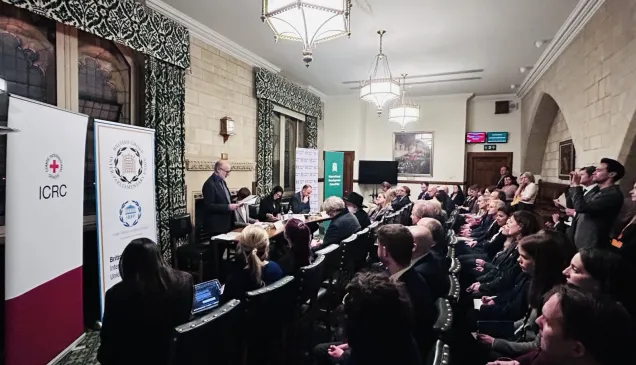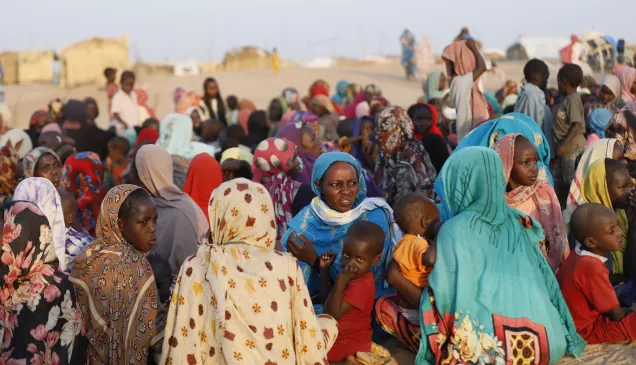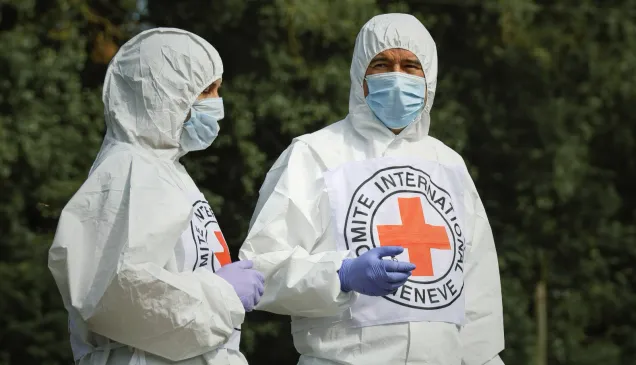Choosing your possible future employer: ICRC or your National Red Cross Society

When you are interested in working for the ICRC and wish to apply to positions advertised you will be invited to create your HR profile on-line. Once you have done that and are applying for a specific profile or position you will notice at the bottom of the first page of your application that we are giving you the option of having your application shared with your National Red Cross or Red Crescent Society.
This means that there are two ways for you to be employed and work overseas for the ICRC. You can work for us exclusively or, if you are a national or resident of certain countries, you can opt to work for us and your National Society.
Why is my application shared with my National Society?
The ICRC and Red Cross and Crescent Societies have an established history of cooperation in sourcing talented and motivated people interested in working in the humanitarian field. Currently these National Societies are: the Australian, British, Canadian, Danish, Finnish, Icelandic, Irish, Japanese, New Zealand, Norwegian and Swedish Red Cross. These Societies offer skills the ICRC does not always have and strengthen its capacity to assist people.
What can being employed by my National Society offer me?
If your recruitment is successful, your National Society might offer you three career opportunities in the Red Cross and Crescent Movement, of which being seconded to ICRC is one. The others are working for the Society's own humanitarian programmes overseas or, again through your National Society, being seconded to the International Federation of Red Cross and Red Crescent Societies, who help people at times of natural disasters and with organisational capacity building of Red Cross and Crescent Societies.
Why does ICRC source people through a National Society?
Cooperation with National Societies brings ICRC several benefits, of which diversity of its work force is an important one. National Societies offer skills ICRC does not always have and help grow ICRC's capacity to assist people. As you will see below, working for a National Society can help develop and enrich your humanitarian career, which in turn may benefit the ICRC and the International Federation.
What does sharing my application with my National Society mean?
This means that we ask your National Society to process your application for the profile or position you have applied for. If your recruitment is successful and an assignment identified for you in one of its operations, you will be contracted by your National Society and seconded to ICRC for the duration of that assignment. You will receive your salary and other benefits at home from your National Society, but be part of the ICRC set-up, including having an ICRC line manager, during your assignment.
What if I opt out of ICRC sharing my application with the National Society?
In that case your application will be dealt with by the ICRC directly and if successful and an assignment is identified for you, ICRC will become your employer.
What does being employed by ICRC offer me?
If your recruitment is successful this means that your employment and career development is managed by ICRC. You have no link with your National Society and possible humanitarian assignments are with ICRC only.
How do I chose between the recruitment options?
A National Society contract will reflect financial and employment obligations of the country, such as national insurance contributions, tax conditions, your pension etc. If you are considering working overseas for a prolonged period of time and depending on your country's social security options it may be a reason to consider a National Society contract.
With the ICRC you are employed by a Swiss organisation with a different compensation and benefit package than your National Society.
Are my skills and background equally interesting for my National Society or ICRC?
In most cases yes. National Societies are sourcing talent with profiles very similar to those that are of interest to the ICRC, for instance medical, water and habitat, Information and communications technology, livelihood, construction and rehabilitation, HR and finance as well as general management. In addition to these, ICRC has specific interest in people who can work in protection and detention, forensic science, with Armed Forces and Police on the dissemination of IHL and Human Rights Law or in clearance activities after weapon contamination.
Who can advise me in my choice?
If you are inspired by someone who has been or is working for the Red Cross or Red Crescent you may seek their advice. Alternatively, you may contact your National Red Cross Society to learn more about their international activities and job opportunities. Thirdly, on the following websites you will find introductions to various profiles ICRC are looking for as well as details of your own National Society. We hope this helps you making up your mind!
Australian Red Cross: http://www.redcross.org.au/careers.aspx
British Red Cross: http://www.redcross.org.uk/About-us/Jobs
Canadian Red Cross: http://www.redcross.ca/about-us/jobs
Danish Red Cross: https://www.rodekors.dk/om-os/job
Finnish Red Cross: https://www.redcross.fi/get-involved/join-delegates
Icelandic Red Cross: https://www.raudikrossinn.is/
Irish Red Cross: https://www.redcross.ie/careers/
Japanese Red Cross: http://www.jrc.or.jp/saiyo/
New Zealand Red Cross: https://www.redcross.org.nz/get-involved/career-opportunities/
Norwegian Red Cross: https://www.rodekors.no/en/om-rode-kors/english-pages/
Swedish Red Cross: http://www.redcross.se/jobba-hos-oss/



